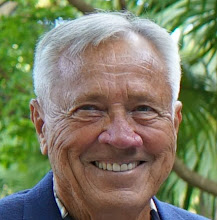Sandy Weill, the man who almost single-handedly did more to obliterate Glass-Steagall now admits that he made a most grievous mistake. Those watching him on CNBC on the morning of July 25, 2012 were treated to a rare peak inside a confessional booth as the architect of today’s Citigroup admitted his folly. He now realizes that what he did was wrong and needs to be reversed.
Weill now believes that banks need to return to pure banking, whereby they accept deposits and make loans. Brokerage firms need to return to executing trades on behalf of customers, positioning securities to facilitate those trades, and taking risk positions within the boundary of reasonable leverage ratios.
It is time to begin the process of dismantling these financial behemoths. Citibank, Bank of America, JP Morgan, Wells Fargo, and others can dispose of their nonbank enterprises by simply issuing shares in those nonbank entities to existing shareholders. At the same these financial shopping centers need to reduce or eliminate the use of derivatives that have cast a giant cloud over their financial statements. While the institutions adhere to the belief that their long and short derivative exposures should be can be netted out, the stock market strongly suggests that market participants favor focusing on gross exposures since the counterparties are of questionable financial strength.
Forgive me father for I have sins - as a commercial banker, I discovered a loophole in the law that allowed me to be the first person to establish a brokerage firm as an operating subsidiary of a bank holding company in 1979. My application, regrettably, provided a pathway for others to follow. The loophole allowed limited brokerage services; however, in the 1990s those powers expanded geometrically thanks to favorable legislation and rulings.
People who were not trained as commercial bankers became CEOs of the nation’s largest banks, and they proceeded to transform those entities into unmanageable financial organizations or financial supermarkets. Sandy Weill was the poster child for that era and when he retired he left a crippled organization as his legacy. If the banking industry had a Hall of Shame, he would be a leading candidate to be the first person installed. Too bad it took him so long to get religion and see the truth!
Weill now believes that banks need to return to pure banking, whereby they accept deposits and make loans. Brokerage firms need to return to executing trades on behalf of customers, positioning securities to facilitate those trades, and taking risk positions within the boundary of reasonable leverage ratios.
It is time to begin the process of dismantling these financial behemoths. Citibank, Bank of America, JP Morgan, Wells Fargo, and others can dispose of their nonbank enterprises by simply issuing shares in those nonbank entities to existing shareholders. At the same these financial shopping centers need to reduce or eliminate the use of derivatives that have cast a giant cloud over their financial statements. While the institutions adhere to the belief that their long and short derivative exposures should be can be netted out, the stock market strongly suggests that market participants favor focusing on gross exposures since the counterparties are of questionable financial strength.
Forgive me father for I have sins - as a commercial banker, I discovered a loophole in the law that allowed me to be the first person to establish a brokerage firm as an operating subsidiary of a bank holding company in 1979. My application, regrettably, provided a pathway for others to follow. The loophole allowed limited brokerage services; however, in the 1990s those powers expanded geometrically thanks to favorable legislation and rulings.
People who were not trained as commercial bankers became CEOs of the nation’s largest banks, and they proceeded to transform those entities into unmanageable financial organizations or financial supermarkets. Sandy Weill was the poster child for that era and when he retired he left a crippled organization as his legacy. If the banking industry had a Hall of Shame, he would be a leading candidate to be the first person installed. Too bad it took him so long to get religion and see the truth!
